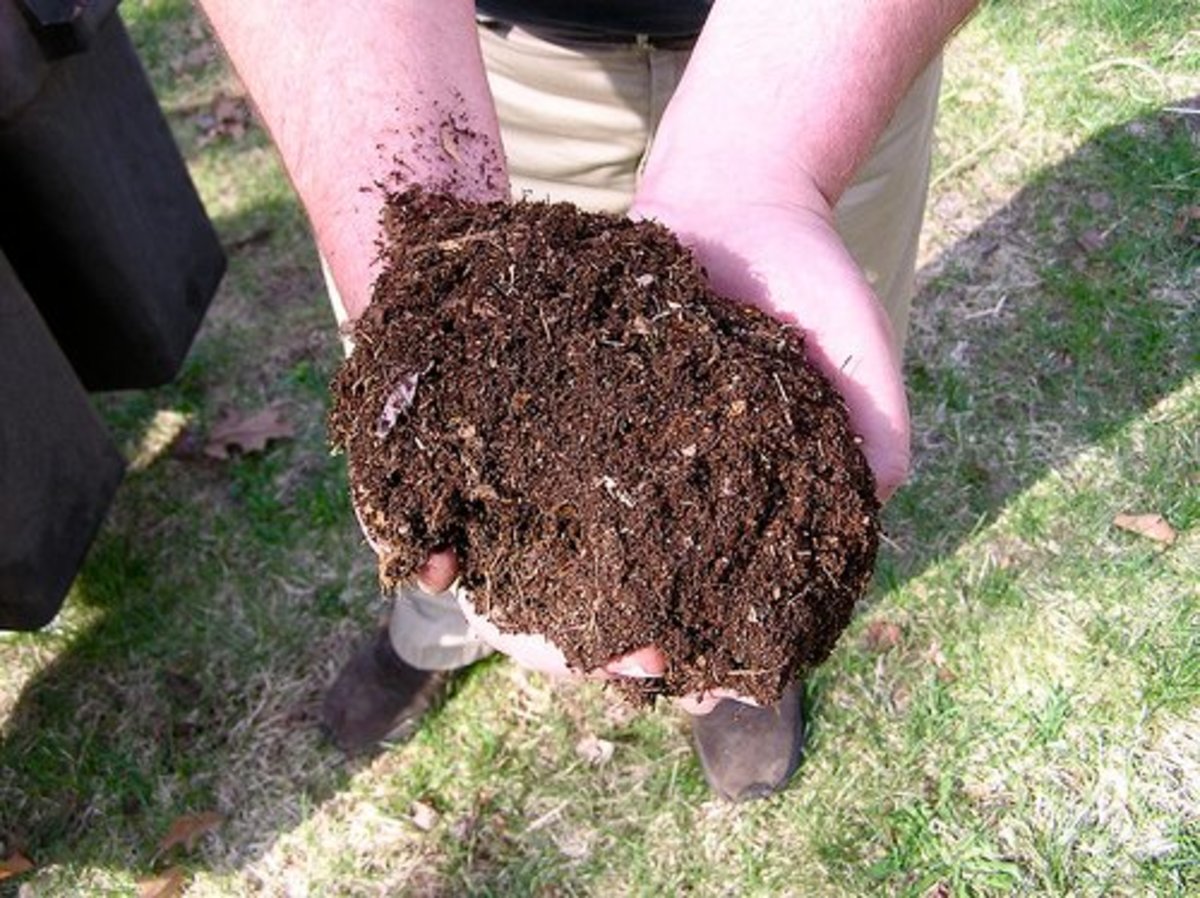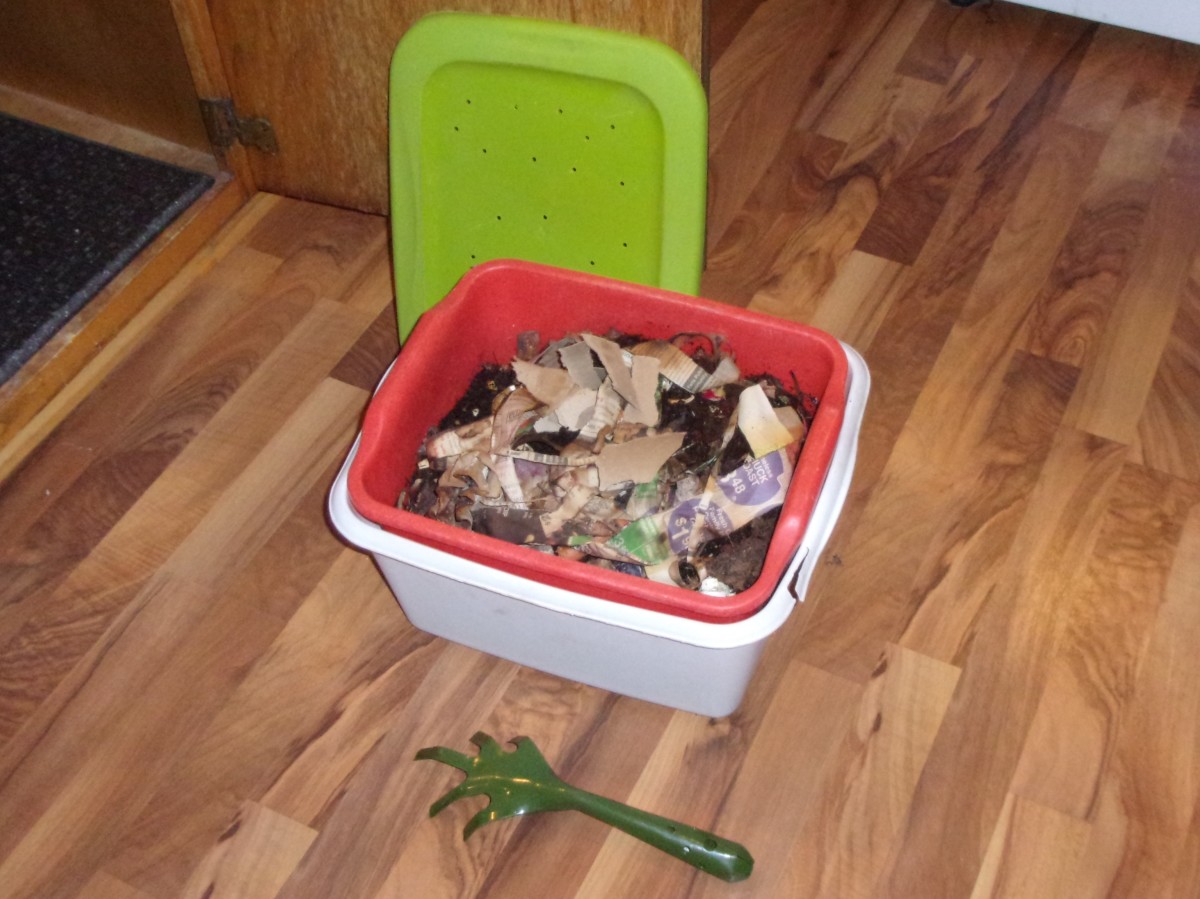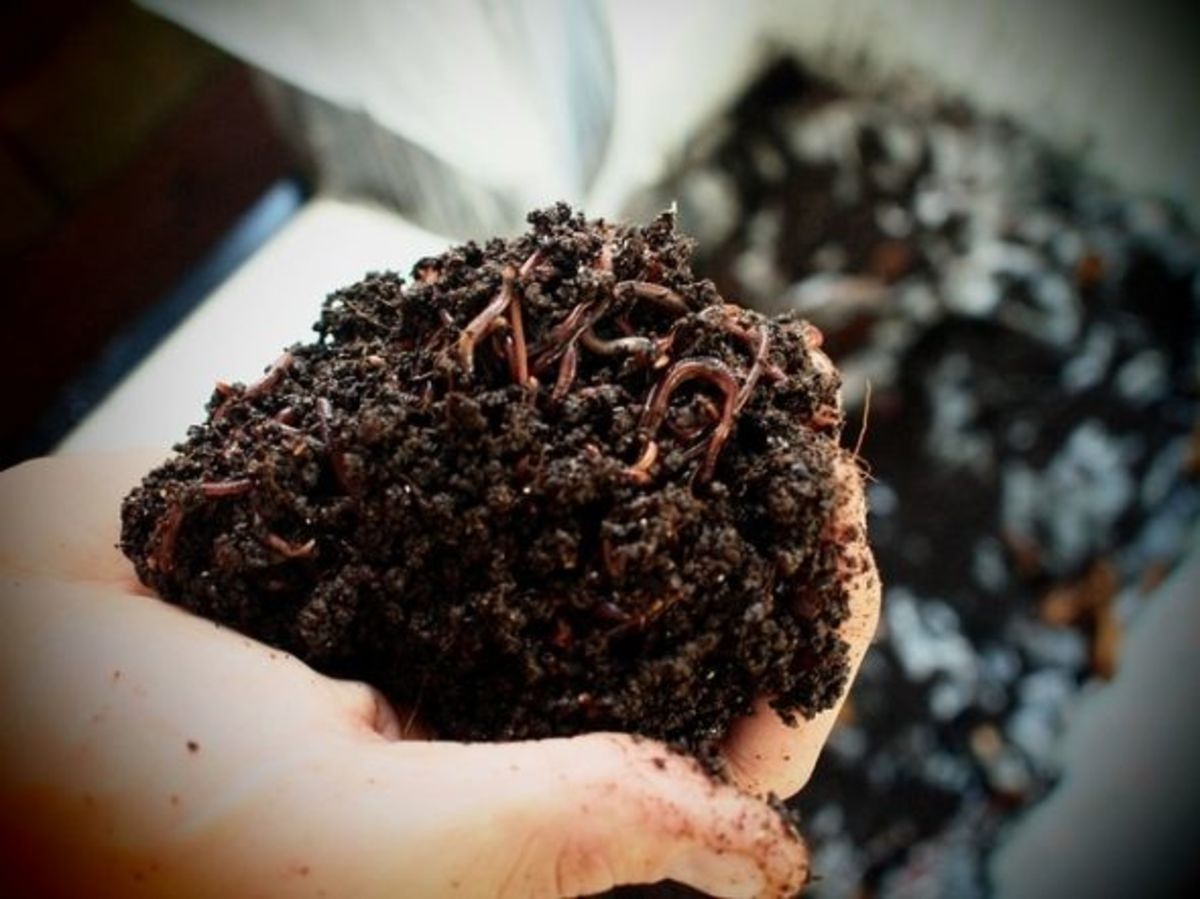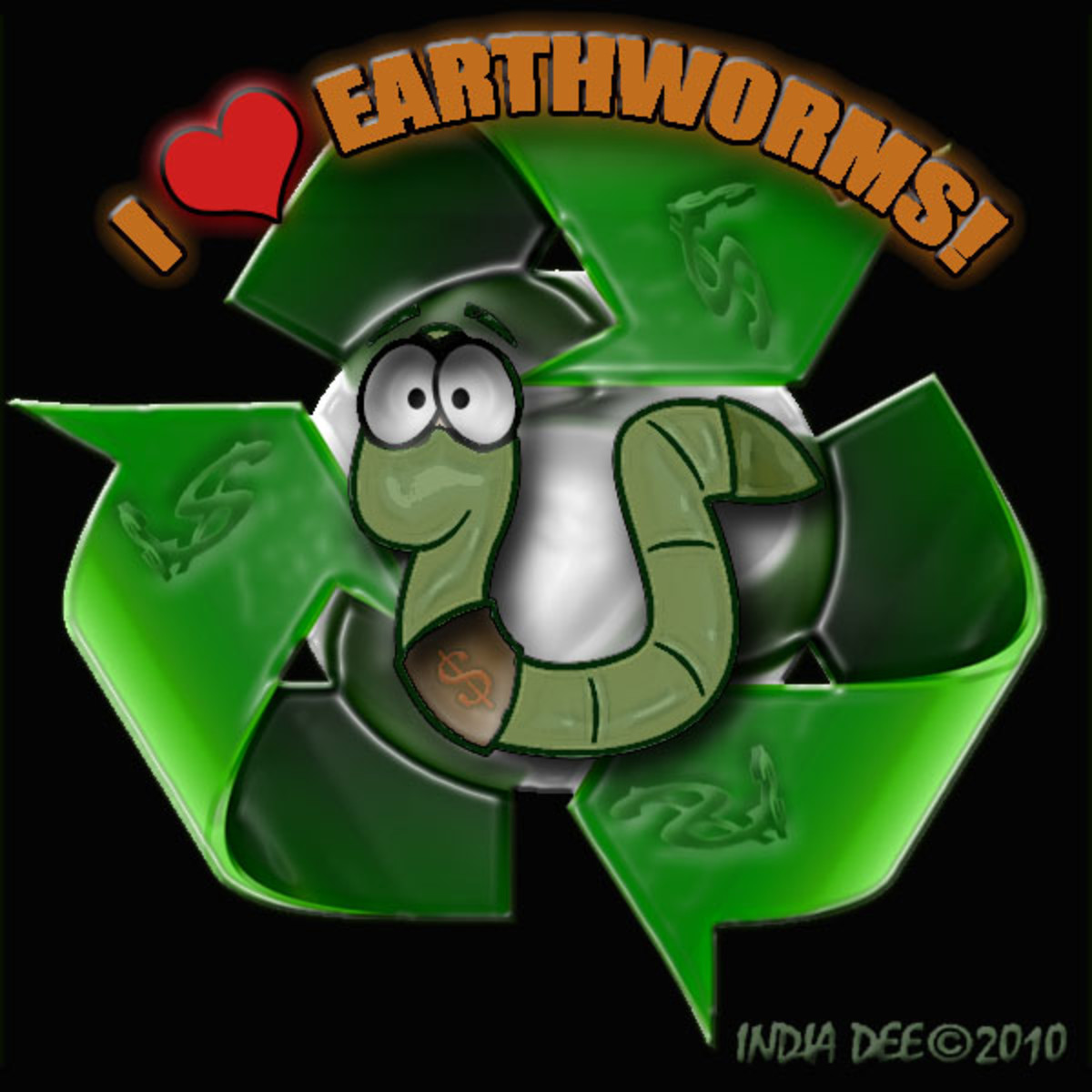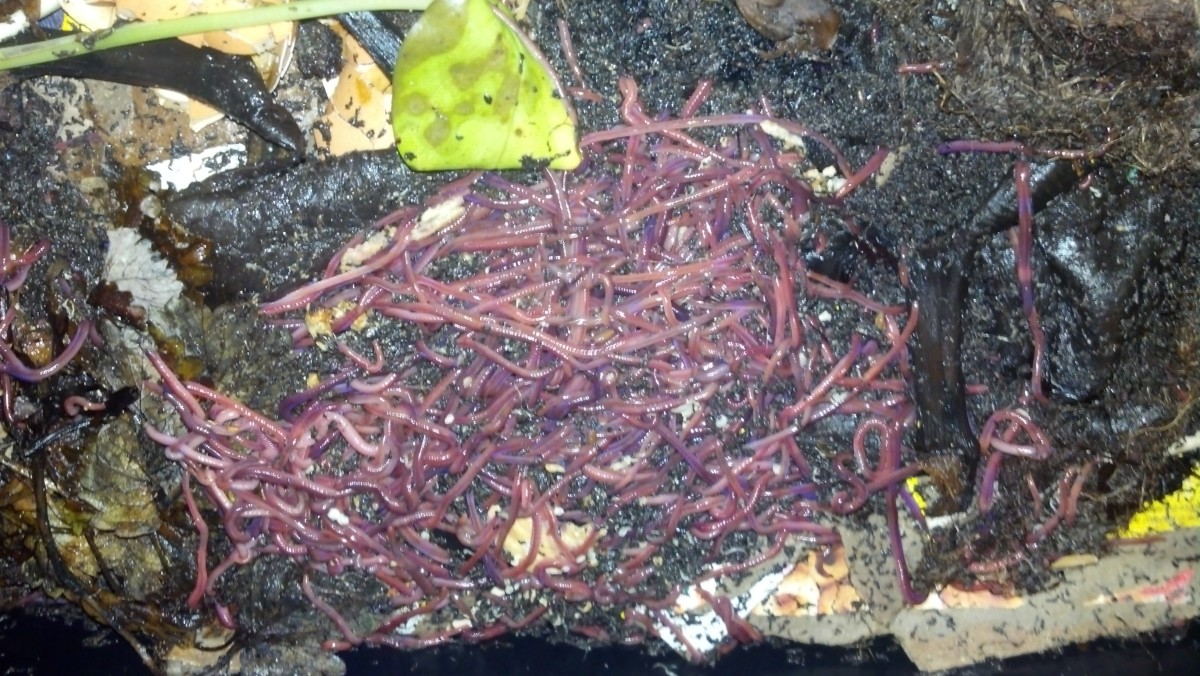Red Wrigglers and Vermicomposting
What Red Wrigglers Are
You've heard them mentioned a lot, and may be wondering what exactly makes them so special. Why are they the preferred vermiculture specialists? Well, there are a lot of reasons, so let's go through them.
Red Wigglers around Us
The Red Wigglers (Eisenia fetida) are from the same family are the common earthworm or night crawlers (Lumbris terrestris). You've probably seen them up and about on your driveway, especially after a rain.
Unlike the night crawlers, the red wrigglers usually live in close and high populated conditions. In addition, they don't care much for tunneling or burrowing. This is why you may never get to see a red wriggler deep underground.
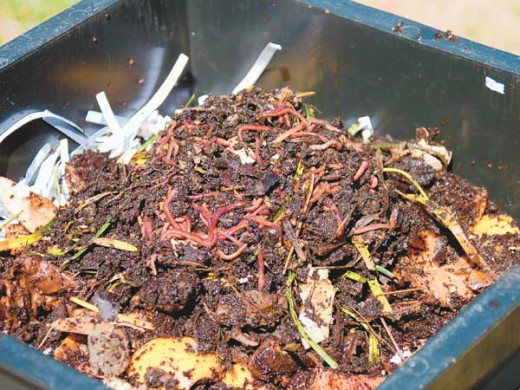
What you should know about Red Wrigglers
They're popular because of their diet. They are composting worms, and need a lot of nitrogen to survive. They can either get this nitrogen from all those organic food scraps we feed them, or from the wild. That’s why you find them in compost pile, and why they are a top option for vermicomposting. They are not like the night crawlers that take their food down into burrows. The red wrigglers feed on the go. In fact, they just scavenge for food up to depths of 6" to 12" below the surface.
Being cold blooded, the worm's temperature is affected by that of its surroundings. The red wrigglers will be most active during the day when their temperature is between 60° - 80°F (16° - 28°C). When the temperature falls outside this range, they become sluggish and eat less.
How long does a single worm live? Red wrigglers have a lifespan of up to 10 years. They are hermaphroditic, so no matter what, they will reproduce. So you needn't worry about getting an equal number of males and females. However, though one worm has both male and female sex organs, it still takes two to reproduce. So don't get one worm and hope to start a colony from it.
Speaking of reproduction, the sexually mature worms will have dark red bands on their necks. This swollen area is about a third the way down the worm's length. It's called the clitellum. Once every couple of months, the worms will congregate into a huge ball at the bottom of your bin. They are exchanging fluids. Do not disturb them. They're in the process of expanding your colony. Each worm will collect sperm from another, and store it for some days. This is to allow for the one worm's very own sperm to die off, before any fertilization takes place.
Importance of Weighing your Red Wrigglers
For worms, fat is good. This worm can gobble down half its weight in food every day. If you have 1lb (16 ounces) of worms in your bin, you should throw in about 0.5lb (8 ounces) of food there every day. By the way, 1lb of worms translates to roughly 1000 worms. One of the best ways to determine exactly how many worms you need for your bin is to measure how much organic waste you get rid of every day. Get the average weight for a couple of days, and then buy twice the amount in weight of red wrigglers. Have 1lb of waste? Get 2lb of worms. It's that simple.
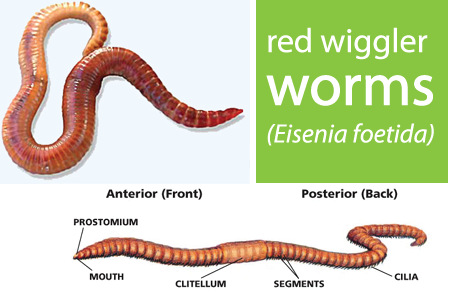
Where to Get Red Wrigglers
You can find the in a number of places. Like earthworms, they make good fish bait. So head out to your local bait shop, and they'll most likely have them. There, they'll be packaged in small containers, and you can haggle for the price that suits you best.
Alternatively, you can do some online shopping. Here, be careful to get them from reputable worm farms. The advantage of this path is that you make your purchase by the pound. This is very important, as it enables you get the right weight in worms for your compost. The price hovers at around $20 for each pound of worms. This price is inclusive of shipping.
Get friendly with your neighbor. Not only for social reasons, but because they can be your source for worms. If you neighbors composts, most likely they use red wrigglers. How many they give you, and whether they charge you or not, depends on how you relate to them. Even if you get a few worms by weight, don't fret. As soon as you start vermicomposting, the worm population will double after every 3 months. That's also how you get to keep track of the health of the worms.

